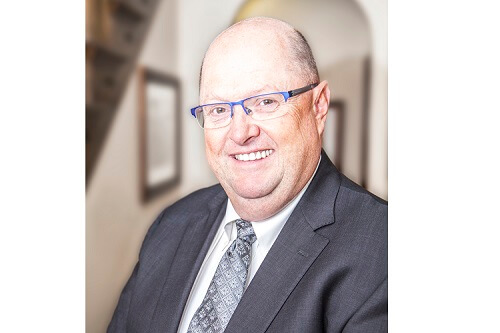For Kevin Dunphy, providing financial education for the next generation is well worth the effort

As a second-generation financial advisor, Kevin Dunphy has great appreciation for the importance of long-term planning. Ironically, however, he says he hadn’t really planned to join the industry.
“My father started in 1974 doing group insurance and estate planning, and I came here in the early ‘80s,” said Dunphy, president of Dunphy-Molloy and Associates of Investment Planning Counsel. “I took the baton in ’93, so I guess you could say I wound up in the industry by accident as part of the family business.”
Because of his lifelong exposure to the world of financial advice, he knows how the business has changed. During his father’s time and in his early years, things were more product-focused; he estimates that the product side consisted of 80% insurance and 20% investment. But today, that balance has shifted to just 40% insurance and 60% investment.
“And overall, today it’s more about client discussions and planning,” he added. For the wider Canadian industry, that sea change came with the rise of passive investing and robo-advisors.
In Dunphy’s case, that transformation started much earlier — around the year 2000, when he attended Strategic Coach programs to determine his future career direction. “I really decided that what I do best and enjoy most is doing personal financial planning for business owners, professionals, and high-net-worth people,” he said. Today, he holds the CLU and CFP designations, and acts as the senior financial planner at his firm.
At Dunphy-Molloy, much of the clientele is composed of business owners who need help with either exit planning or succession planning. The firm has also helped corporate clients with their employee benefits. And because it’s a family business, Dunphy has had the privilege of guiding loyal clients — some of whom originally worked with his father — over the course of decades.
“The question I get asked the most is ‘how much do I need to retire?’ and in my 30 years, I still don’t know the answer,” he said. “It’s all personal. What are you spending money on? Do you have plans to travel, or drive a motor home? How much debt are you carrying? That discussion on retirement alone takes me an hour or more, a meeting or two … I don’t think clients have given enough thought into what their needs are today and what they potentially could be down the road”
Aside from retirement, Dunphy helps his clients address the issue of asset protection, which can be very problematic depending on the specific circumstances. A divorce, single parenthood, and financial difficulties faced by heirs are just some of the problems he helps clients figure out.
“I have seven members on my team,” he said. “One of them is a younger advisor who’s helping to build relationships with my clients’ children and grandchildren — 20-, 25-, and even 35-year-olds — and develop them into clients.”
To do that, Dunphy’s firm focuses on helping those children understand the importance of long-term planning and saving. Clients with young children are provided with a book on ideas to save money and think ahead. Children who are old enough are walked through the process of setting up a TFSA or RRSP, and are also taken through the essentials of financial decision-making — the impact of rising rates on mortgages, how excessive credit-card-swiping can affect your eligibility for loans, and so on.
That’s more guidance than many children get, but Dunphy is convinced it’s all just a good start. “It’s a ‘live for today’ kind of society,” he said. “Children even come out of university thinking that they’ll be working into the $100,000+ jobs, drive BMWs, and live in big homes. I think financial literacy should be a fixture at home and in schools, but it’s not.”
From a business perspective, Dunphy confesses that his advocacy involves a long-term sacrifice: providing financial education and valuable service to his clients’ children and grandchildren to cultivate lasting relationships with a new generation of clients.
Read more: How passive income can help you build your wealth
In the nearer term, his firm is focused on tax changes, particularly the passive-income changes that are taking effect for corporations in 2019. Retirees’ healthcare is a key conversation topic among their professional clients as legacy benefits and lifelong health benefits fade away from corporations’ compensation packages. And while October’s market volatility has undoubtedly rocked many investors’ portfolios, Dunphy said the individual long-term focus and diversification ensured by his firm make it a non-issue for his clients.
And while digital technology has become critical in providing timely updates and online account access, he’s still a steadfast believer in the power of real-world conversations.
“I’m 58 years of age, and I’ve been at this my entire life, but I’m still a yellow scratchpad kind of guy,” Dunphy said. “In my world, nothing beats a face-to-face meeting.”



